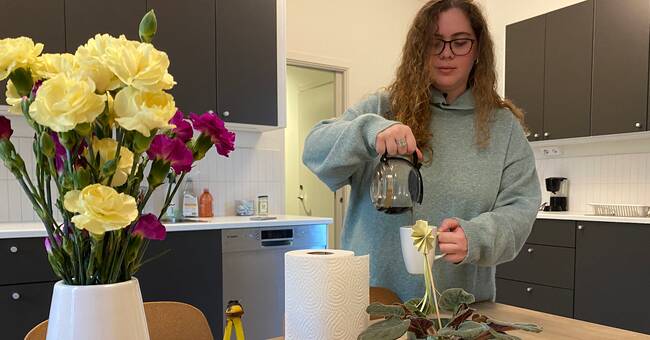Research is currently underway on how the sustainable and climate-smart student housing of the future should be designed.
To find out, the Royal Institute of Technology, KTH, together with Akademiska Hus has built an experimental home for shared living, or co-living, as it is also called.
Here, a handful of students get to try living together for a year at a time.
- I wanted to sign up for the experiment because I like the idea of sustainability and that you share the home with others, says student Melpomeni Petrou, who has just moved to Stockholm from Greece.
Researcher: "Sees enormous potential for this"
The experimental home has been developed and rebuilt in two rounds and three different floor plans have been studied.
From studio apartments to today's co-living.
The students who have now moved in are test group two out of three.
Sara Ilstedt is a professor at KTH and project manager for Co-kitchen.
Photo: Frida Claesson / SVT
Researcher and project manager Sara Ilstedt is investigating how the accommodation can be designed so that students have private spaces, but also spacious spaces for socializing.
The purpose is also for the accommodation to give a lower climate footprint.
Researchers already see that shared housing can save up to 30 percent in climate footprints per person.
- I see an enormous potential for this, especially for youth housing, but also for the elderly or for people who are in other events in life when you do not want to live alone, she says.
See more about the housing experiment in the video.

